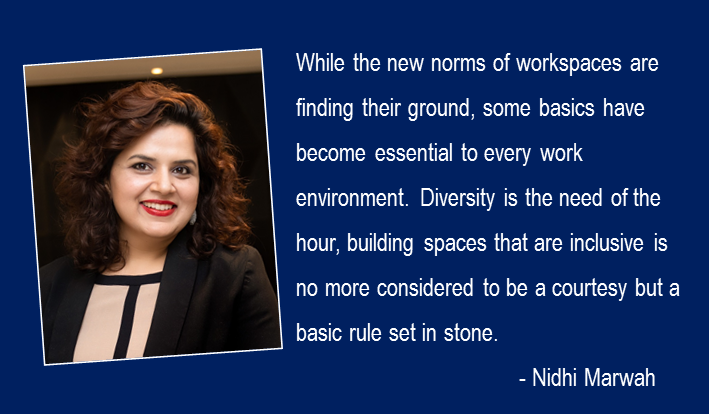Given that we spend around a third of our lives at work, it’s important that the workspace environment is continually re-evaluated, improved and optimised. The nature of work is in flux, corporate culture is evolving, and technology, an increasingly ubiquitous presence in all aspects of our lives is also impacting the way our workspaces function. As we prepare to enter a new decade, we should expect that change will be a constant, effective and efficient workspace will need to be responsive, personal and connected.
Defined by Technology
Technology is already changing the way we work, touching virtually every industry and all aspects of our lives. Its impact is only just starting to be felt when it comes to workspace design and function, but the future will be an entirely different story. Technology allows us to develop new efficiencies in terms of how a workspace is used and automation of lights, temperature and air quality mean that we can work more comfortably without the need for manual intervention. When it comes to responding to the challenges of remote communication, high-tech solutions make it possible for seamless interactions between teams operating in different cities or countries. State-of-the-art video conferencing systems and meeting room booking systems are all part of incremental changes that are removing some of the friction points in standard office spaces. Artificial Intelligence now allows the physical space to directly interact with the user of the space, more and more companies are leaning towards to the use of AI in everyday functions from simple face recognition to the use of beacon technology, AI is now a part of the office space.
Success Will Be Social
In the past, privacy was one of the most valuable attributes of a workspace, but all indications are that this is changing, and fast. Multiple industry studies have shown that social spaces are considered to be a fundamental workplace amenity, with an increasingly millennial workforce indicating that open plan spaces and designated social infrastructure are an essential conduit for better working relationships, easier collaboration and higher-quality communication. In the future, it will be imperative that organisations are able to offer workspaces that include social spaces in order to attract top talent. It will also be necessary to rethink more traditional floorplates composed of designated desks and meeting rooms in favour of a creative approach to space that facilitates open and collaborative work styles. Designated percentage of the floor plan is increasingly reserved for activity or recreation zones depending on the demographic of the workforce. From foosball tables to lounge areas, baristas to relaxation zones, these spaces allow the workforce to unwind and socialise in between the ever elongating workday.
Wellness at Work
One of the most important trends to impact the workspace in the next decade will be the increased value placed on health and wellbeing. In the last few years there has been a marked change in terms of the design of workspaces thanks to an understanding that small, incremental changes can improve overall wellbeing, and that good health can in turn promote better performance at work. Innovations like standing desks and ergonomic seating will become essential features of the workspace of the future thanks to their ability to relieve some of the physical strains caused by a more traditional office setup. These sorts of innovations can also stimulate productivity and foster closer collaboration and openness among teams. The Centre for Active Design reported that an impressive 65% of sit-stand participants reported greater productivity than static desk users, while another study published in the British Medical Journal explained that standing desks helped individuals move more and feel stronger while experiencing reduced muscle pain.
Inclusivity is Essential
While the new norms of workspaces are finding their ground, some basics have become essential to every work environment. Diversity is the need of the hour, building spaces that are inclusive is no more considered to be a courtesy but a basic rule set in stone. Office spaces today are built keeping in mind the demographic of the workforce, access for the disabled or differently abled and sensitive to the growing number of women in the workforce.
Experiment Always
When it comes to developing workspaces of the future, an open mind is essential. It is the delicate balance between ever evolving spaces and increasing push towards compliance that ensure credibility and transparency. There will be experiments, successes and failures, all of which will ultimately help us learn what it is that enables us to work smarter. Data will be an essential touchpoint that will allow businesses to tailor designs, technologies and programs to help the teams and individuals that use them. The concept of the ‘office’ as a fixed or static space will no doubt change as remote and flexible working becomes a new normal. Ultimately, the future of work is part of an evolutionary process that aims to make us more efficient, more creative and more connected.



Be the first to comment on "What is the future of workspace?"